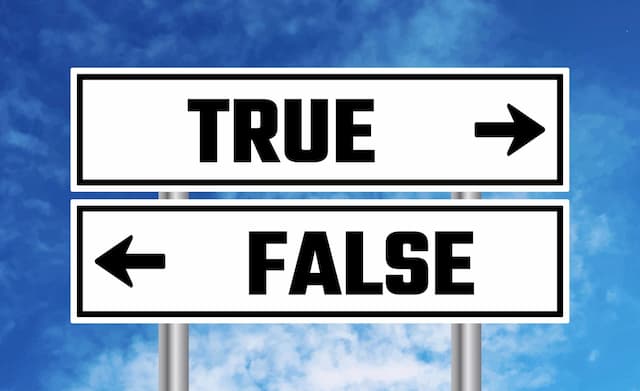Looking into the Mirror: Honor Father and Mother
Honor your father and your mother, that your days may be long in the land that the Lord your God is giving you (Exodus 20:12).
In an age where people are living longer, and society is more transient and fragmented than ever, many Christians wonder how this commandment should apply to their relationship with parents (if it should apply at all). Because this commandment is part of God’s Word it does have relevance here in the 21st century and beyond.
What is Honor?
This commandment tells us that we are to “honor” our parents. What does honor mean? The Hebrew word is kabad, and it contains such meanings as heavy (Ex. 5:9), harden (Ex. 8:15, 32; 9:7), glory (Ex. 14:4, 17), and revere. It’s the same word that God uses of Himself when He speaks of getting glory for Himself (Ex. 14:4, 17; Lev. 10:3).
When we honor someone, we esteem that person highly, as very valuable. So, when we honor or glorify God, we place Him in His rightful place as Sovereign Lord of all. We esteem Him as the highest of all, and we act accordingly in His presence. Obviously, then, our honoring of anyone else is not to place that person in the same place as the Lord. What, then, does it mean to show our parents honor?
What Does it Look Like?
The first way we honor them is to value their wisdom. No one is perfect, of course, but parents have life experience that we lack. Proverbs 4 talks about seeking after wisdom, in the context of a father talking to his son. The implication of that passage (and indeed the whole book) is, “Listen to me son, and I’ll pass along my wisdom to you.” Like all counsel from fallen humanity, we are to test the wisdom and counsel we receive against Scripture. But, we do well to seek and embrace the wisdom of our parents.
Secondly, we show them respect. Though this should be true of all, it is especially true of our parents. We are not to disrespect them, either in word or deed. Jesus even reminded the Israelites,
For Moses said, ‘Honor your father and your mother’; and, ‘Whoever reviles father or mother must surely die’ (Mark 7:10).
When we take that statement with the promise of the commandment, “That it may go well with you in the land,” we see that the Lord takes the honor of parents seriously. Why is that? The main reason is that they represent God to us. That may seem strange to say, especially if our parents are unbelievers. But, it is still true. Most people get their first images of God from their parents (by word and/or example).
A third way we honor our parents is we care for them. In both the Old and New Testaments, the children were taught to care for their elderly parents and provide for them. In fact, if we look at the remainder of what Jesus said in the passage from Mark, we’ll see an important truth. This is the full statement:
For Moses said, ‘Honor your father and your mother’; and, ‘Whoever reviles father or mother must surely die.’ But you say, ‘If a man tells his father or his mother, “Whatever you would have gained from me is Corban”’ (that is, given to God)—then you no longer permit him to do anything for his father or mother, thus making void the word of God by your tradition that you have handed down (Mark 7:10-13).
Notice here that Jesus links financial support of elderly parents to honoring them. It seems the Jewish leadership, over time, had made a ruling that an adult child could avoid caring for his parents by devoting that financial help to God. Such an idea, of course, is found nowhere in the Old Testament, and is contrary to how the law viewed parents and the childrens’ responsibility to them.
How this principle is applied today may vary from family to family. Some children actively care for their parents (in their home). Some provide financial and practical help while still living apart from their parents. And some seek an environment (such as a nursing home or long-term care facility) that can give the kind of care the parent deserves. As with many things in Scripture, it really boils down to a matter of the heart.
Finally (as much as it shouldn’t have to be said), we honor our parents when we obey them. We are to obey, as much as we are able to do so, without compromising our devotion to God and His calling on our life. Paul tells us,
Children, obey your parents in the Lord, for this is right. “Honor your father and mother” (this is the first commandment with a promise), “that it may go well with you and that you may live long in the land” (Eph. 6:1-3).
This passage has caused many questions in the church. Does it refer to adult children? The word rendered children is the Greek teknon, which denotes primarily a son or daughter, without regard to age. It’s used in the New Testament for both young children (Matt. 2:18) and older children (Matt 9:2, where the context suggests an older man). It’s also used without thought of a particular age (Matt.7:11; 21:28). The fact that Paul ties this command back to Exodus 20:12 suggests it’s not limited to young children still living with their parents.
For an adult child, this passage is directly linked to our first principle: wisdom. If we honor and respect our parents we will seek their wisdom and take it seriously. Again, however, it should be pointed out that obedience to parents must never come at the expense of obedience to God, but neither should obedience to God be used as an excuse to ignore or disrespect parents.
In the end, the honor we show to our parents is a good indicator of the esteem to which we hold the Lord. One cannot claim to truly love God while dishonoring his or her parents. But one who seeks to honor his or her parents will see honor returned in the favor of the Lord.








